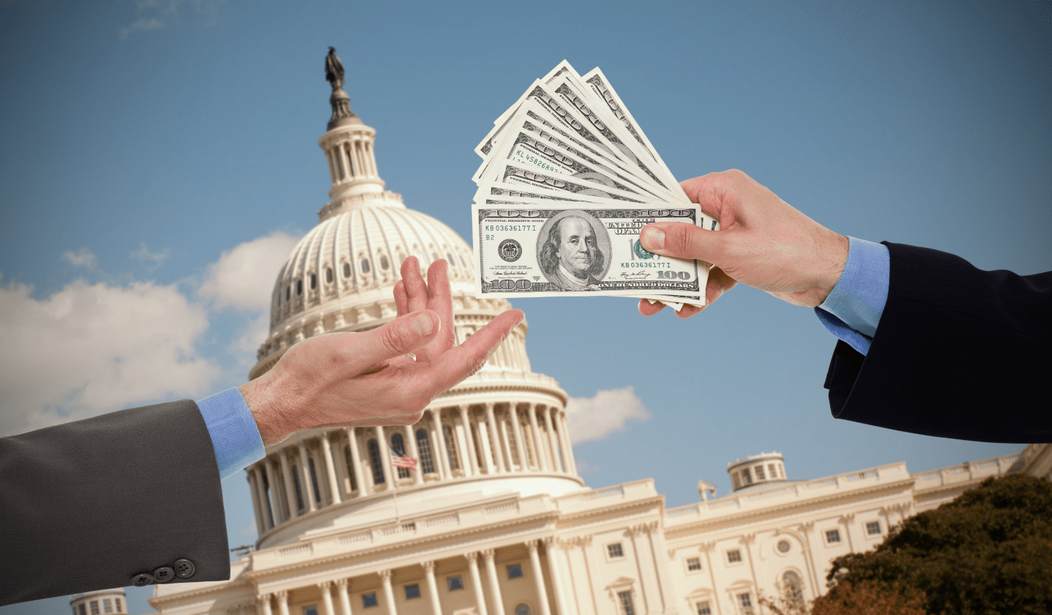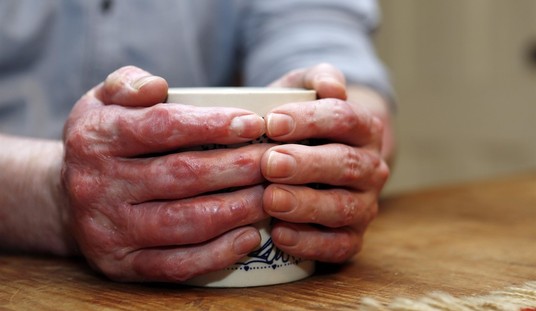On Saturday, presumptive Democratic nominee Hillary Clinton will announce her plan to introduce a campaign finance amendment in her first 30 days as president, CNN reported. Her amendment would reverse the freedom of speech victory in Citizens United v. FEC, as she and Bernie Sanders have each promised numerous times.
There’s just one big problem with this — millionaires and billionaires cannot and do not buy elections, and 2016 is the prime example of that.
First, let’s talk about Sanders’ and Clinton’s declarations. When the Vermont senator endorsed Clinton, he mentioned “the disastrous Citizens United decision, a decision which is allowing billionaires to buy elections and is undermining our democracy.” He repeated this claim in a New York Times op-ed, saying, “Wall Street and billionaires, through their ‘super PACs,’ are able to buy elections.”
In advance of Saturday’s announcement from Clinton, an aide leaked that her proposal would allow “Americans to establish common sense rules to protect against the undue influence of billionaires and special interests and to restore the role of average voters in elections.”
If billionaires are indeed controlling elections, they’re not exactly doing a bang up job. Let’s take a look at the “super PACs” Sanders so mistrusts, and what they did in the 2016 election so far.
The damage from 2016
The biggest super PAC of the 2016 cycle was Right to Rise USA, according to the campaign finance site Open Secrets. This super PAC raised $121 million, and spend $86 million in the 2016 cycle. So it must have supported Donald Trump or Hillary Clinton, right? No. It supported former Florida Governor Jeb Bush.
Yes, the same Jeb Bush who failed to win a single state. The Bush who won 4 pledged delegates, and a whopping 0.92 percent of the vote overall. The same Bush who received 286,634 votes — not exactly anywhere close to Trump’s 14 million (45 percent of the vote), or even in the ball park of Ted Cruz’s 7.8 million (25 percent of the vote).
Ok, so the first one was a huge bust. How about the second? That would be Conservative Solutions PAC, which raised $60 million and spent $55 million. Surely that was a Trump PAC, right?
Nope again. That PAC backed Florida Senator Marco Rubio, who did quite a bit better than Bush (despite Bush spending heavily on attack ads against him!). Rubio won three states, got 11 percent of the vote, and 173 delegates. That’s still small potatoes compared to Cruz and Trump, however. Cruz won more than double Rubio’s votes, states, and delegates.
In third place in terms of candidate PACs is Clinton’s Priorities USA Action, which raised $76 million and spent $36 million. Even that couldn’t give the former secretary of State a free pass to the Democratic nomination. The huge populist wave also known as “Bernie Sanders” came far closer to stopping her than ever anticipated, despite his relative lack of campaign finance.
To be fair, if all the pro-Cruz PACs are counted as one, they would hit fourth place behind Bush, Rubio, and Clinton. The Texas senator’s “dark money” groups raised a combined $55 million and spent a total of $26 million. If billionaires controlled politics, you would expect Cruz to have finished a distant third place, rather than a close second.
Next Page: So how much did Trump’s super PACs spend?
If anyone disproves the “campaign finance” narrative it is Donald J. Trump. Trump had (has?) two PACs: the Great America PAC, which raised a paltry $1 million and somehow spent $2 million; and Rebuilding America Now, which spent $1.6 million.
Compare that with the big anti-Trump PAC, Our Principles PAC, which raised $19 million and spent $18 million.
Despite this utter defeat in terms of campaign finance, The Donald claimed a whopping 14 million votes (45 percent of the vote), winning 41 contests and 1,441 delegates. Sure, he didn’t get a majority, but he destroyed Bush and Rubio. Even Chris Christie, who took an embarrassing 57,636 votes (0.18 percent), had a stronger PAC than Trump — America Leads raised $20 million, and spent $18.5 million.
What is Citizens United?
So if these super PACs aren’t exactly all they’re cracked up to be, why are they so demonized? And what does this have to do with the much-maligned Citizens United Supreme Court decision?
In 2008, a small nonprofit organization named Citizens United created a video, “Hillary the Movie,” which aimed to weaken Hillary Clinton’s 2008 primary campaign. The Federal Election Commission (FEC) argued that the organization could not run commercials for the movie, since they would come too close to the primary elections against Barack Obama.
In 2010, the Supreme Court ruled that films like “Hillary the Movie” constitute free speech in the political arena, and could not be silenced by agencies like the FEC. The decision also allowed for more freedom in funding such political speech, as donating money for such movies is a form of protected speech.
This opened the doors for Political Action Committees, PACs, to raise and spend money advocating political candidates and causes. This money is still heavily regulated, as organizations doing this are nonprofit and have to abide by a great deal of IRS codes to keep their nonprofit statuses.
At the end of last year, 13 Hours: The Secret Soldiers of Benghazi premiered in theaters across America. One of the major reasons this film was possible in the first place is the Citizens United decision. 13 Hours was exactly the kind of free political speech that the Supreme Court defended as protected by the First Amendment.
Next Page: Why campaign finance is about free speech.
Why campaign finance is about free speech.
So free speech is great, unless you go against what the Democrats want. Don’t believe me? Check out their climate inquisition on the Senate floor this past week. If you threaten to use RICO criminal racketeering laws against nonprofit groups willing to disagree with the climate change “consensus,” you have no credibility when it comes to free speech.
Democrats use the same kind of fear mongering when it comes to campaign finance. Obviously the “one percent” should not control politics in this country, but that’s not what happens. People give money to support causes they believe in, political and apolitical. Just because the rich are able to give more than others doesn’t mean they shouldn’t be able to exercise their free speech.
When Nevada Senator Harry Reid stands up and demonizes the Koch Brothers, most people don’t realize that Charles G. Koch and his wife Elizabeth actually rank number 10 of the top individuals funding outside groups in the last political cycle, according to Open Secrets. For the 2016 cycle so far, Charles and Elizabeth Koch rank 31st.
The top two outside donors, Tom Steyer of San Francisco, CA and Michael Bloomberg of New York, NY gave overwhelmingly to liberals (100 percent and 95 percent) in the 2014 cycle. Steyer spent $73 million and Bloomberg spent $28 million — dwarfing Charles Koch’s $5 million. And yet when you hear about the evils of “dark money,” you hear about Koch, not Steyer or Bloomberg.
So when you hear Bernie Sanders and Hillary Clinton demonizing the influence of millionaires and billionaires, think about Jeb Bush. Think about what happened in Benghazi and why the public should know about it. Think about the crusades against conservative donors who don’t give as much as liberal donors.
More than anything, think about the freedom of speech and why it should be perfectly legal for us to advocate for what we believe in.
Disclosure: This author worked for Citizens United and his wife works in the Koch network.









Join the conversation as a VIP Member